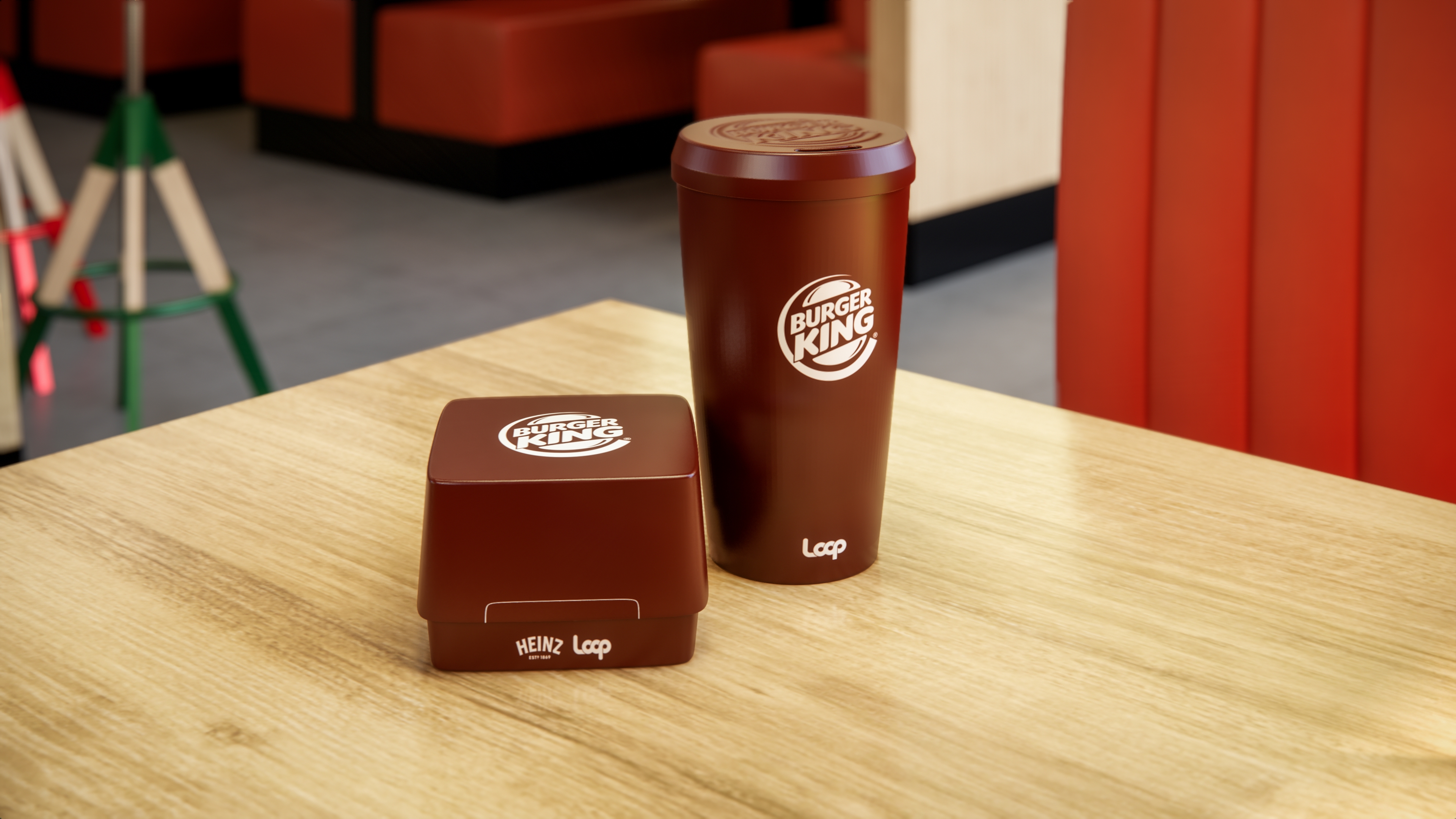Burger King is trying out reusable packaging at a few locations next year through a partnership with the Loop platform.
Loop is a collective effort from companies like Procter & Gamble, Nestle, Unilever, PepsiCo and more to limit waste by offering products in reusable packaging.
Customers in Tokyo, Portland and New York will get to try out the program first. For a small deposit, they’ll receive their food in a brown branded sandwich container or sealed cup. When they return to the restaurant, they can bring the packaging items back to be cleaned through Loop’s “closed-loop” system. Once they return the packaging, they’ll also receive a refund of their initial deposit.

“As part of our Restaurant Brands for Good plan, we’re investing in the development of sustainable packaging solutions that will help push the food service industry forward in reducing packaging waste,” Matthew Banton, head of innovation and sustainability for Burger King Global said in a press release. “The Loop system gives us the confidence in a reusable solution that meets our high safety standards, while also offering convenience for our guests on the go.”
“During COVID, we have seen the environmental impact of increased takeaway ordering, which makes this initiative by Burger King all the more important,” Tom Szaky, founder and CEO of Loop, said. “This enables Burger King consumers to easily bring reusability into their daily lives, and whether they choose to eat-in or takeaway, they will be able to get some of their favorite food and drinks in a reusable container.”
Last fall, Burger King started a recycling program at UK locations, where customers could drop off old plastic kids meal toys to be melted down. Burger King also stopped giving away plastic toys in the UK.
Stateside, Burger King has committed to sourcing 100 percent of its guest packaging from renewable, recycled or certified resources in the U.S. and Canada by 2025.
“[W]e’re investing in the development of sustainable packaging solutions that will help push the food service industry forward in reducing packaging waste,” Banton said. “The Loop system gives us the confidence in a reusable solution that meets our high safety standards, while also offering convenience for our guests on the go.”
McDonald’s also partnered with Loop for reusable packaging in the U.K., going along with the country’s push for moving past single-use plastics and creating waste.
More countries are going that route, both in the legal sense and socially. While the U.S. hasn’t adopted sweeping legislation like Canada, which plans to ban certain single-use plastic items by next year, the eco-friendly sentiment is growing as people continue to become aware of the impact of plastics on the environment. And, again, while the U.S. hasn’t done anything on the federal level like the U.K. or Canada, plenty of major cities and states have passed their own local legislation to end the use of items like plastic bags.
The reusable packaging ball is rolling, and Burger King plans on ramping up this program to more cities after the initial launch.



